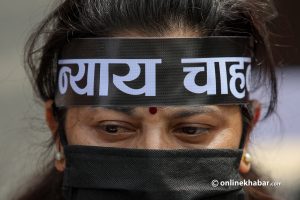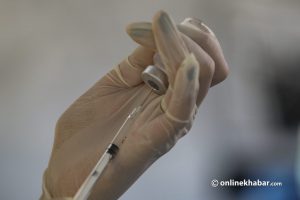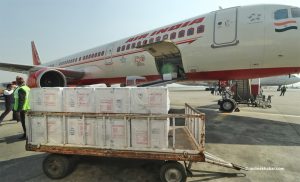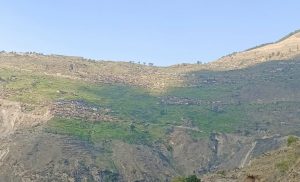
The impact of the Covid pandemic has been unprecedented, with more than 99 million cases reported including more than 2 million deaths in the world. However, it is on the decline in Nepal as on December 16, Nepal reported zero Covid cases in the past 31 months. But, just eight days later, on December 24, the Ministry issued a statement warning against the possibility of another Covid outbreak in view of a new sub-variant BF.7 that has a higher infectious rate seen in neighbouring countries—China, Japan and South Korea.
A season of gatherings and celebrations is going on now as the English calendar is marking the New Year this weekend. Hence, in the statement, the ministry has urged the public to follow public health safety measures that include wearing masks, maintaining physical distance, washing hands with soap and water or using sanitisers to prevent the infection.
Meanwhile, the Health Ministry data about the Covid vaccination drive suggests that 79.5 per cent of the total population has been administered only one dose of the vaccine while 76.5 per cent has been administered full doses. The latter figure also includes those who have been administered the one-dose Janssen & Janssen vaccine. While the government agencies flag an alert of a possible outbreak, the data implies that one-fourth—a considerable population–remains deprived of vaccination. Thus, more vulnerable and threatening than those who are yet to receive the booster dose.
A position paper published in 2022 shows that Dalit communities or communities discriminated against based on work and descent (CDWD), in particular, are among the vulnerable population. The paper, titled Covid Pandemic and Vaccination: CDWD Concerns from South Asia, surveyed people from the CDWD in Nepal, India, Pakistan and Bangladesh. Hence, it is imperative that the government prioritises the Dalit communities and other constituents of the CDWD in its next Covid vaccination campaign.
The vulnerable population

Communities discriminated against on the basis of work belong to the informal sector and those on the basis of descent belong to Dalit communities. Primarily, literacy and poverty, among others, of individuals and groups determine their vulnerability to pandemics, disasters and emergencies. The lower the tier, the more vulnerable they are. For the CDWD, this has been proven correct, suggesting most people missing out on the Covid vaccination drive might be from the same community.
According to an analysis report on the informal sector released by the Central Bureau of Statistics, 25.8 per cent of the country’s 3.22 million workers are employed in the informal sector in Nepal. Similarly, Dalits constitute 13.6 per cent of the country’s 29 million, according to the official 2011 census data.
The paper’s survey posits 78 per cent of CDWD in Nepal have received their first dose of Covid vaccination while the rate of those who have received both doses drops to 62 per cent. Meanwhile, the positive rate is interestingly low.
Information is key
The paper finds out that literacy plays an important role in being informed about Covid and Covid vaccination. Members of the CDWD have very low literacy; women among them in rural parts are mostly illiterate, which makes them vulnerable to misinformation, low awareness, less access to government benefits and getting involved in superstitions.
Covid-related health awareness bulletins and information, government relief attempts, medicine and hospital-related information, and health and Covid vaccination camps were advertised through newspapers, television, radio and the internet. But, those who were illiterate and did not have those appliances did not know how to use them. Hence, the CDWD relied on information coming only through the community. Many did not understand the severity of the pandemic while some believed that it was divine intervention. It is interesting to note that Nepal’s literacy rate is about 68 per cent with big gender and caste-wise disparity.
Hence, whenever the government relaunches its Covid vaccination drive as it considers the risk is not over yet, the Dalits and other members of the CDWD should receive priority. Additional measures should be introduced to ensure they get the right information and services on time.





















